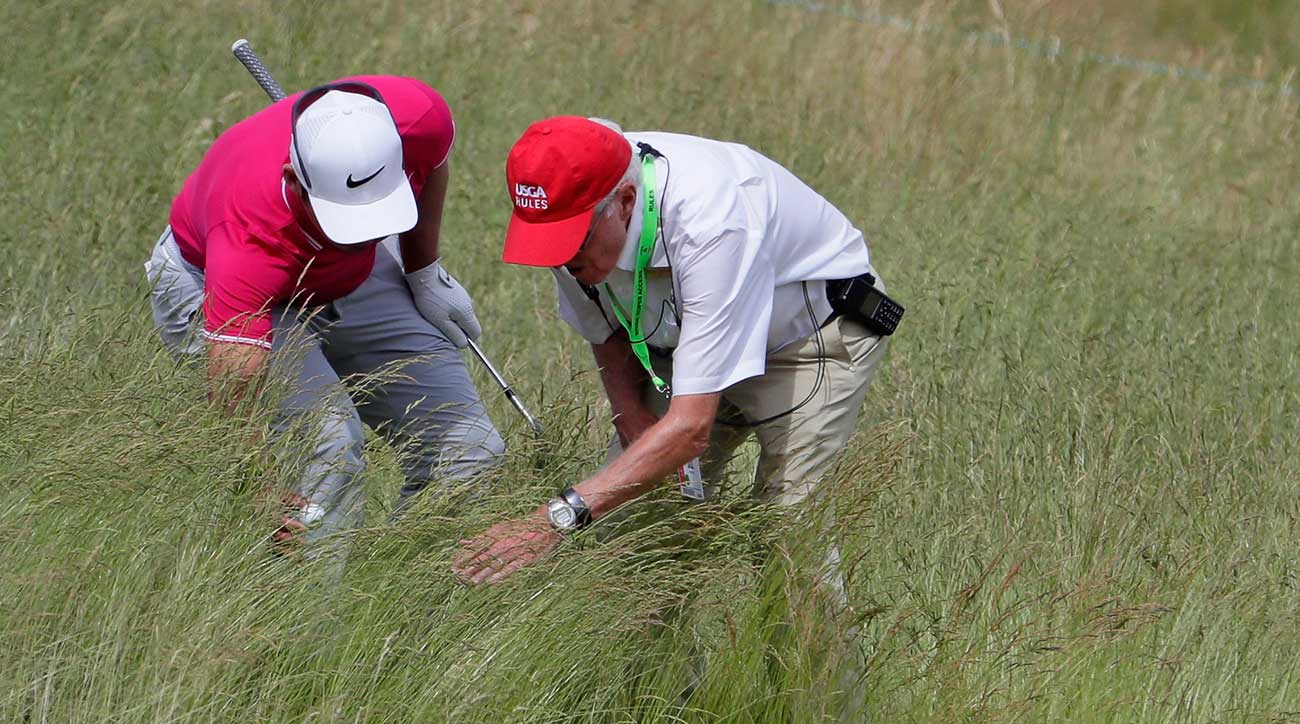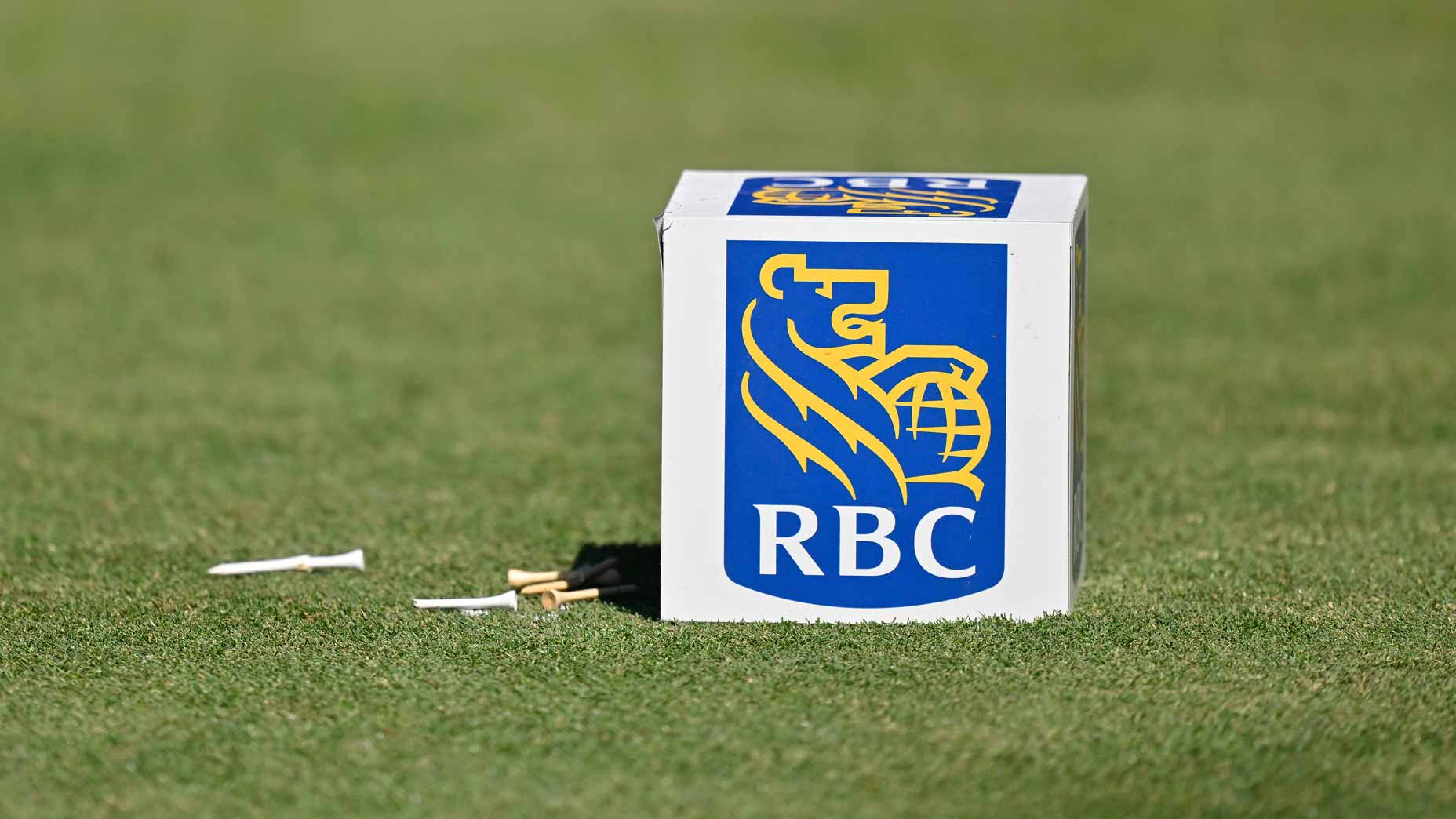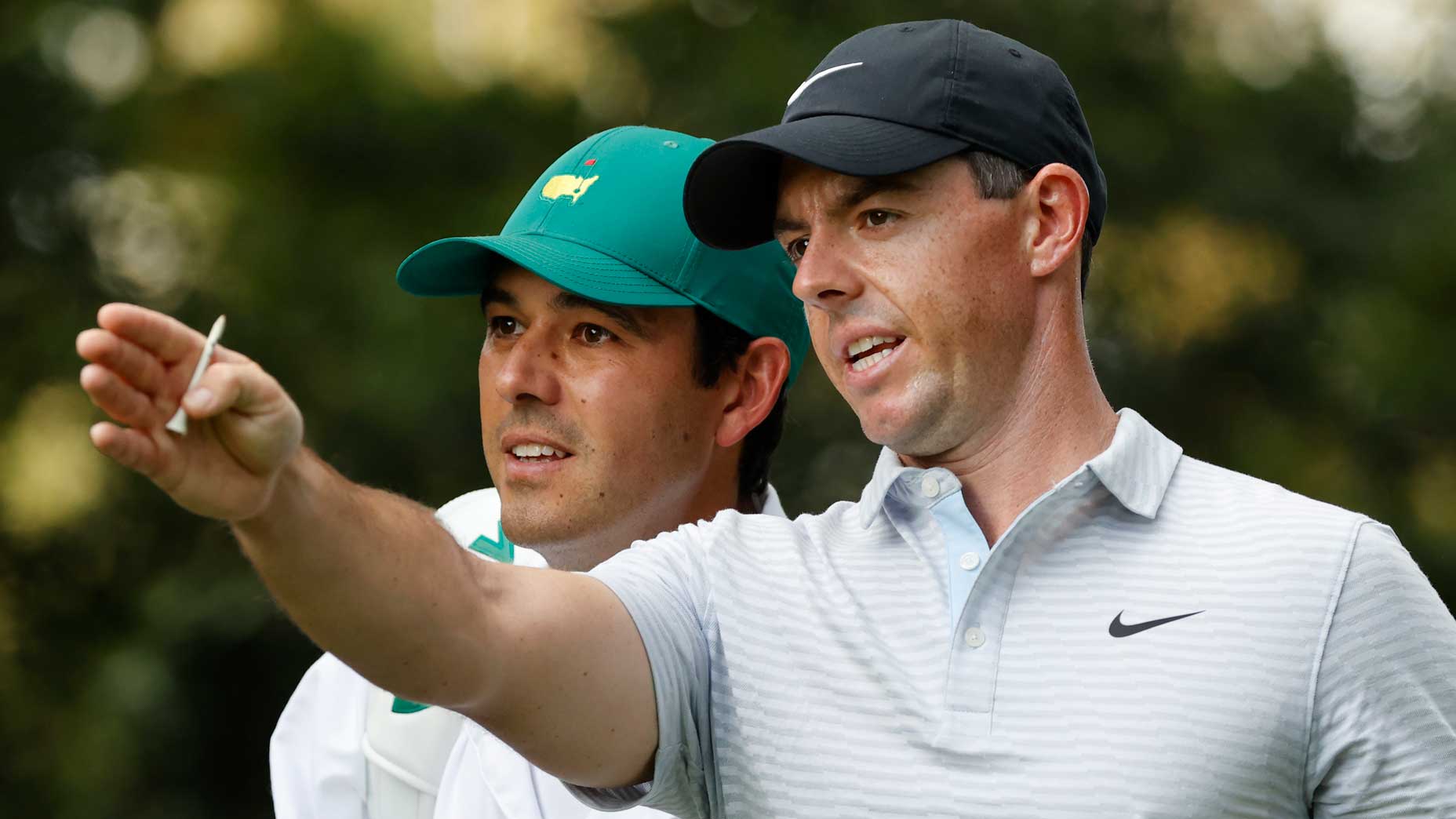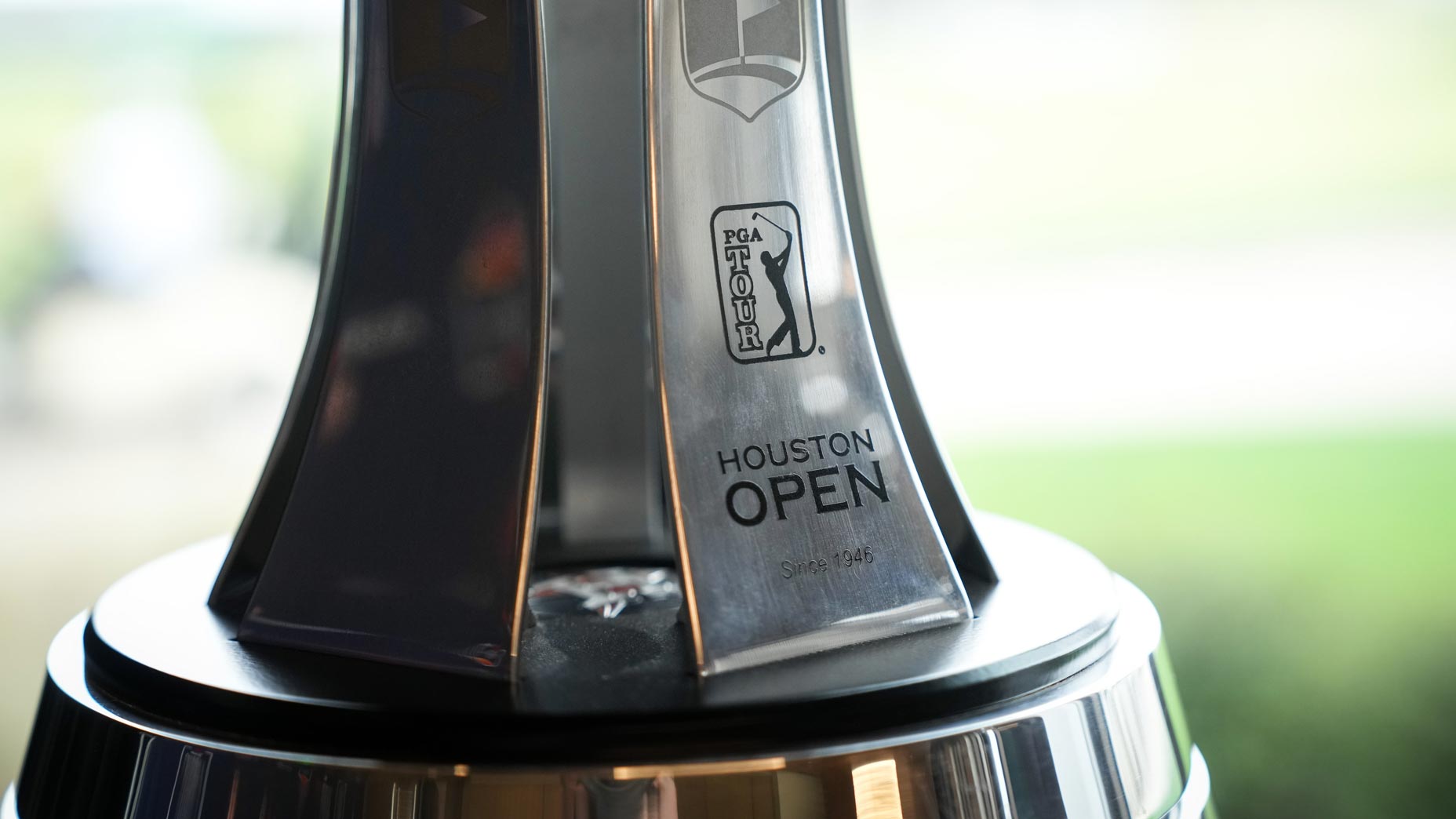Check in every Sunday night for the unfiltered opinions of our writers and editors as they discuss the hottest topics in the sport, and join the conversation by tweeting us @golf_com. This week we discuss the rules changes that might cause a stir in 2019, the PGA Championship’s newest host course, a new program from the PGA Tour, under-appreciated stories of the year and more.
1. There’s been much said, written and discussed about the changes to the Rules of Golf coming into effect on Jan. 1, but more instances have come up as of late. At his own event two weeks ago, Tiger Woods was involved in a rules issue when he double-hit a shot that was only detected via slo-mo video. Woods wasn’t penalized, but come next year there will no longer be a penalty for a double-hit ball anyway. On top of that, Bryson DeChambeau said just last month he plans to putt with the pin in next year. (“The USGA’s gonna have to go back on that one,” he said. “Like, ‘No! We made the hole bigger!'”) Of all the rules changes coming in 2019, which is most apt to cause controversy?
Sean Zak, assistant editor (@sean_zak): Since most of these rules changes have been made to AVOID controversy, I think the rules most apt to cause controversy will be any of them that include the word “accidentally.” Players who accidentally move the ball with their feet while searching for it. Players who accidentally deflect their ball in motion. Any rules that allow the player to claim “accident” also allows them to lie about it being accidental. I doubt it happens much, but the vagueness of that big A-word could potentially loom large somewhere.
Jeff Ritter, digital development editor (@Jeff_Ritter): Yeah, there’s the “95% certainty” clause in the new rules around a moving ball. You are 95% sure you didn’t do it? No penalty. HD relay can’t overrule the player, but what happens when video shows something very different from the player’s version of events? It’s a narrower window for controversy, but I don’t think we’re out of the woods here.
Josh Berhow, news editor (@Josh_Berhow): There is always going to be that gray area for several rules, but I tend to agree with Bryson on this one, at least at the pro level. Maybe it’s just the aesthetics of putting with the flagstick in that’s throwing me off. But I can see it ruffling some feathers if Bryson (and others?) starts doing it often. I don’t think anyone saw that coming when this rule was created mainly to speed up the game.
Dylan Dethier, associate editor (@Dylan_Dethier): I think what’s bound to cause controversy, or at least consternation, is the way the rules are shifting the onus away from the players. It’s more similar to the rest of sports, where a very part of the game is getting away with whatever you can without getting caught. Think pass interference in football — defensive backs will get as physical as they can without getting flagged. Golf isn’t getting to that point, but it’s moving slightly closer. And while that isn’t inherently wrong, it’s certainly different. Different turns controversial.
Michael Bamberger, senior writer: I agree with all that you said, Dylan, except the premise. That won’t be controversial because it’s such inside baseball. But the subtle difference really is one of the things that makes golf special. Ninety-five percent is an absurd standard, because certainty in these matters cannot be turned into a number. So that’s one area. Dropping from knee-height will look ridiculous, but won’t be controversial. When somebody leaves the flag in on a three-footer when you’re above the hole on the first or second green at Augusta National, that will be controversial. The USGA had a chance to say the professional game and the game we play really are different. They made a nod in that direction but quit it too soon.

2. The PGA of America made it official on Tuesday, announcing a $520 million relocation from Florida to Frisco, Texas. The new 600-acre development will also have two 18-hole courses, one of which will be designed by Gil Hanse. Several PGA-run events are already scheduled to take place on the new course, including the 2027 and 2034 PGA Championships. Are you OK with a yet-to-be-built course landing a major?
Zak: I’m okay with it, mainly because when Hanse was instructed to create a great course for the Olympics in Brazil, he did precisely that. He’s working with as much design clout as anyone in the game right now, so yeah, I trust him to do it right.
Ritter: It seems a little silly to announce these events so far in advance — I mean, I don’t even know where I’m going to eat lunch tomorrow — but no worries about the worthiness of the future venues. There’s plenty of time to grow grass.
Berhow: In Gil We Trust. I’m sure the course will be great; and it will be fun to get back to Texas for a major championship. But yeah, it’s not like we needed to know about it this far in advance. Silly me, my desk calendar only goes through 2023.
Dethier: Co-sign! There would be some legitimate hype that would come from announcing majors a couple of years out. As it stands, we know most of the PGA Championships for more than the next decade. How am I supposed to get excited about Congressional in 2031? What if there are some cool, deserving new sites that establish themselves by then? This doesn’t even answer the question (sure, Gil will be good, and the project has serious potential), but this whole way of operating bums me out.
Bamberger: This is a smart business move. Consider the name of the group behind it. I’m fine with it, and with the move. Change, not for the sake of change but because there’s some real thought behind it, really is the lifeblood of this country. They say May in Frisco, Texas, is beautiful.
3. The PGA Tour is working to develop a new program to prepare and transition the best college players for the pro game, offering varying levels of playing access to the Tour. (Not all pros found this idea particularly revolutionary, including Olin Browne, who tweeted: “The PGA Tour used to have a pipeline from college to the Tour — it was called Q-School.”) Could you see a system like this leading fans to take more of an interest in college golf?
Zak: I see only a slightly greater interest in college golf, particularly focused on the juniors and seniors who might normally have jumped into the professional ranks early on, but waited, stayed at school, earned a degree, and competed for national titles knowing that if they compete well, there will likely be a full-season exemption waiting for them afterward. It does nothing to damper the allure of professional golf and, more importantly, some expendable income, so I still see the greatest players leaving school early.
Ritter: The new rule could generate a little buzz, but college golf needs more TV time to really see a breakthrough.
Berhow: I would hope so, but as Jeff says it’s going to be the lack of TV time that holds back your average golf fan from getting into the college game. Plus, it’s not like all of these guys are going straight to the big show.
Dethier: Good for college golf, slightly damaging for the Web.com Tour. It seems to slightly undercut their move to pump up the Web as a transitional tour. I’m okay with it — Zak laid out the reasons it works — but their strategy doesn’t seem wholly coherent with this stuff.
Bamberger: I hadn’t thought about the impact on interest in college golf. Yes, I suppose this could mean slightly more interest in college golf. College golf and PGA Tour golf are different animals. The Q-School, on Tour courses, was a sensible system, even if it was brutal.
[bc_video video_id=”5977748336001″ account_id=”416418725″ player_id=”B1lrmWbebQ” embed=”in-page” padding_top=”56%” autoplay=”” min_width=”0px” max_width=”640px” width=”100%” height=”100%”]
4. Tiger Woods’s comeback dominated golf headlines in 2018. But what story from the past year didn’t get the attention it deserved?
Zak: Gerry Lester Watson Jr. winning as many times as Brooks Koepka. Seriously, regardless of what you think of Bubba Watson, he won three pretty big Tour events last year (Riviera, Match Play and Travelers) and ascended from outside the world top 100 to as high as 13th.
Berhow: Brooks Koepka would say his winning of the U.S. Open and PGA Championship didn’t get the national attention it deserved. I think it got that. Maybe it didn’t get the respect it deserved. I also still go back to the “Maybe you should ask Jordan why he didn’t want to play with Patrick,” mid-Ryder Cup tweet from Justine Reed — the wife of arguably the team’s best player! — that really got #ReedGate chugging along in Paris. It still amazes me. We talked about the aftermath a ton. But that tweet was just the start of an insane Ryder Cup subplot no one saw coming. Those calculated Reeds!
Dethier: Wow, there are so many that we’ve already forgotten about. I’m working on a “biggest controversies of the year” deep dive, so I’ve been wading through the 2018 news. But I’m leaning toward the Florida Mid-Am final, which was decided when one player’s caddie allegedly sucker-punched his opponent in the parking lot during a rain delay. We may never know the full story, but there’s a heck of a lot to unpack here.
Ritter: All good picks. My choice had a mini-rebirth a few weeks ago, but it’s worth remembering Hosung Choi, and the swing that was made for the internet, beyond his 15 minutes of fame. He is, after all, a champion now.
Bamberger: I think Koepka is correct: winning a U.S. Open and a PGA Championship in the same year, after coming back from a lengthy layoff? That’s an enormous accomplishment. Nobody talks about it. I don’t know why. The way Koepka overwhelms the golf course has something to do with it. The way he talks about his accomplishments does, too. But it deserves more. As for the Reed comments — just talk. The Americans losing, and losing big, that is far bigger. I guess the biggest story that got no attention was Vijay Singh settling his suit with the Tour. I’d like to know what he got.

5. The man behind the PGA Tour’s Strokes Gained metric, Mark Broadie, is working on a SG calculation to measure pros’ performance under pressure. When it’s ready (and should the Tour decide to use it), do you envision a stat of this nature having wide appeal?
Zak: Hell yeah. It’s bound to have a typical name — Strokes Gained: [Important Moments] — but will provide meaning like we’ve never had before. Insert broadcast lines like: “Rory McIlroy began his career as a stellar player in these clutch moments, but has faded in his ability to close by a factor of 10 these last four years.” Or “The proof is in the pudding, Jim. Rickie Fowler is NOT a clutch golfer.” The sports world LOVES the word “clutch,” and whether or not you believe in it, it’ll find its way into more golf conversations because of this stat.
Berhow: When it’s ready this metric will be gobbled up by not just media and fans but players themselves. Can you imagine being, say, Rickie Fowler, and having a statistic tell you that you ARE NOT a clutch player? I’m sure said player would be seething. But then there’s no way they could hide or prove it wrong by doing anything other than winning or playing well in the clutch. I’m already drooling.
Dethier: When it comes to evaluating “clutchness” in real time, I think we’ll have sample size issues for a while. But over the course of a year and a career? It’ll be intriguing, and at least give us some stats to cement — or overturn — general perception.
Ritter: I’m extremely excited, and while I’m not holding my breath for it, I’d love to see Broadie find a way to extrapolate his new stat for weekend golfers. Wouldn’t we all want to know if we’re clutch? (Even though we probably aren’t?)
Bamberger: It’s interesting if it can predict future excellence, and maybe it can. If it can, then golf will have its Moneyball moment. Brad Faxon and I, years ago, were talking about looking and comparing what players do on the 35th and 36th holes when they are right on the cut line. Over time, those numbers, turned into a ranking, might tell you something interesting.
6. Our Alan Bastable reported last week on the intersection between golf and Jeopardy (there have been more than 800 golf clues in the show’s 35 seasons). Channel your inner-Trebek and write us a Jeopardy clue for this category, Bad Golf Advice.
Zak: This motto was made famous in the 1990s by not only the style of play of golf’s Long John, but also a book he co-authored with the same title.
Dethier: This fictional instructor nuggets of advice included: “Inside each and every one of us is our one, true authentic swing. Something we was born with.” And, more succinctly: “Just bash the living s— out of it.”
Ritter: This golf tip is overused but it could save a player who swung and missed, or a grade-schooler whose eyes wandered to their neighbor during an algebra exam.
Bamberger:
Alex: Category, please.
Contestant: Bad Golf Advice for $100, please, Alex.
Alex: And the answer is: This golf star was told repeatedly that he would never make it on Tour, since he was playing with a bent left arm.
Contestant: Who is Calvin Peete?
Alex: You still control the board!
Berhow: I would be laughed off Jeopardy so fast.






